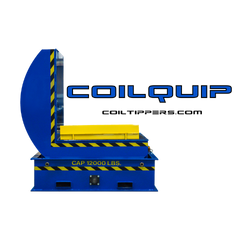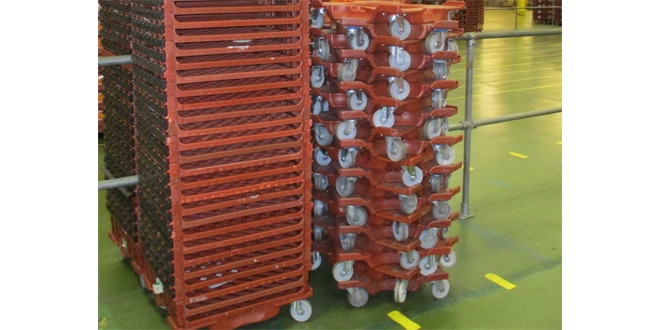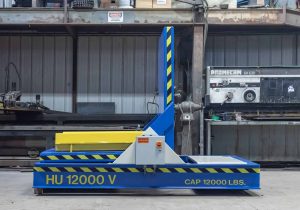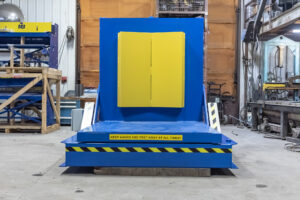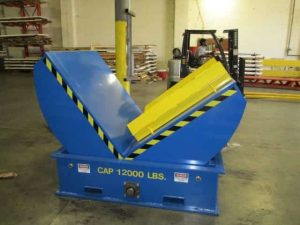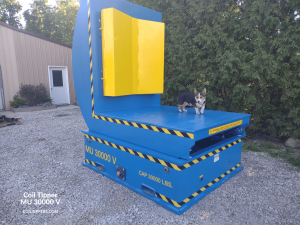The Impact of Illicit Sales of Grocery Delivery Equipment on the Circular Economy and Plastic Recycling in the UK
The exponential rise of online marketplaces has brought about new opportunities for people to sell unused items, giving them a second life and a chance to make some extra income. However, amidst this seemingly harmless trend lies a pressing issue that is detrimental to the circular economy and plastic recycling efforts in the grocery industry.
Bakers Basco, as a provider and controller of returnable transit packaging (RTP) equipment used extensively in the bakery industry, has noticed a concerning trend. Grocery delivery equipment, such as bread baskets, is being illicitly sold online. These items, meant for transporting bread across the country daily, are being listed on platforms like eBay and Facebook Marketplace with misleading descriptions.
The situation is both shocking and frustrating for Bakers Basco, as each piece of equipment carries the company’s name, address, and contact details, leaving no doubt about its ownership. While it’s understandable for individuals to sell their own possessions, it is unacceptable for them to profit from someone else’s property.
Even worse, when confronted about the issue, some sellers refuse to return the equipment, demanding payment instead. This behaviour not only costs the baking industry millions each year but also disrupts the supply chain for daily bread, impacting bakeries, retailers, and consumers alike.
The offline world has seen its share of challenges in recovering stolen bakery equipment, despite deploying national investigations teams and GPS tracking technology. However, the proliferation of online marketplaces has exacerbated the problem, posing a significant new challenge for various industries.
Contrary to the belief that these actions are victimless, they directly affect bakeries, retailers, and shoppers, leading to increased costs and inconvenience due to the actions of a few thoughtless and selfish individuals.
“We are deeply concerned about the misuse and illicit sale of our plastic bread baskets,” said Stacey Brown, national investigations manager at Bakers Basco.
“These baskets are specially designed for our members, ensuring hygiene standards and safe storage and transportation of baked goods. Selling them for general-purpose use poses contamination risks, compromises food safety, and adds to the already pressing plastic waste problem.”
In light of this issue, Bakers Basco is taking proactive measures to safeguard their equipment and the environment. The company is monitoring all social media sites with a dedicated team that will take legal action against anyone found selling their equipment online.
It is essential for consumers to be aware of the impact of such actions on the circular economy and plastic recycling. Misusing specialised equipment like bread baskets not only poses risks but also contributes to environmental harm. Bakers Basco calls for responsible behaviour and adherence to industry standards to preserve the integrity of the supply chain and protect the environment.
